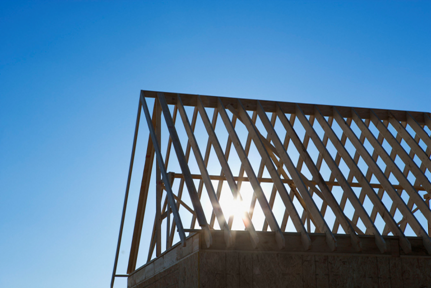
We hear so much as of late of all the modern conveniences and aspects of our way of life that are supposedly perilous to our environment. Yet, one of the biggest threats has been strangely ignored by environmentalists and organizations who purport to be advocates for the protection of the environment.
The massive affordable housing quotas that have been foisted upon New Jersey municipalities for nearly 50 years have forced the obliteration of tens of thousands of acres of open space, woodland, farmland, and wildlife habitat, only to be replaced by suburban sprawl and impervious coverage that exacerbates flooding, traffic, congestion, strains on infrastructure, and increased demands on municipal budgets.
If pro-housing quota advocates were truly concerned with creating more affordable housing in New Jersey, they would support my legislation to bring back Regional Contribution Agreements (RCAs). RCAs were once a part of the affordable housing equation, allowing towns to satisfy 50% of their quota by rehabbing existing dilapidated/ vacant housing in a neighboring municipality. This was a win/win all around by putting housing where infrastructure already existed near established job centers and public transportation in areas that need revitalization and can accommodate additional population growth. Instead, every acre of open space becomes vulnerable to development with no legal recourse.
One of the benefits of home rule in New Jersey is that towns have the ability to develop as they see fit. No one knows better than the local governing body and the people who elect them as to how much development (if any), how much open space, and how many students the schools can accommodate, in short, what the character of the town will look like in the future. Now, if a town does not capitulate to the excessive demands of the state affordable housing quotas, they are subject to “builder’s remedy lawsuits.” This means that a town’s local zoning standards will be overridden, and a judge will decide how a town will develop, not the taxpayers who pay the highest property taxes in the nation.
There are solutions to the question of affordable housing that will have little to no detrimental impact on the environment. Aside from reinstating RCAs, local and state governments can work with organizations like Habitat for Humanity, who do a phenomenal job of creating affordable housing with zero impact on the New Jersey taxpayer. Donating surplus properties acquired through foreclosure or tax sale would rehabilitate existing housing and put additional units back on the property tax rolls.
Providing tax credits to developers who build affordable housing in designated Areas of Redevelopment (ARE) will protect greenfield areas, while reinvigorating blighted properties. Next, the state should address the 900-pound gorilla in the room – New Jersey’s highest in the nation property taxes.
That is one of the largest contributors to the high cost of housing in the state. Not only is it a burden on those who own single-family units, but it also affects renters who pay higher rents to cover the cost of the assessed taxes on the building in which they live. Many times, a property owner will pay significantly more in property taxes than their mortgage and insurance combined. In the case of New Jersey, taxes can make the difference between housing being affordable or unaffordable.
Finally, New Jersey should remove the arbitrary year of 1980 for construction of affordable units to be counted in a municipality’s housing stock. Deed restricted buildings built before 1980 exist and should be included within the state’s tally of existing affordable housing.
It is time that New Jersey eliminated the expensive government mandates and excessive housing quotas that result in real threats to the environment and forced urbanization of suburban and rural areas across the state.
Addressing the root causes of New Jersey’s chronic unaffordability will do more to make housing affordable, while protecting the environment for future generations.


